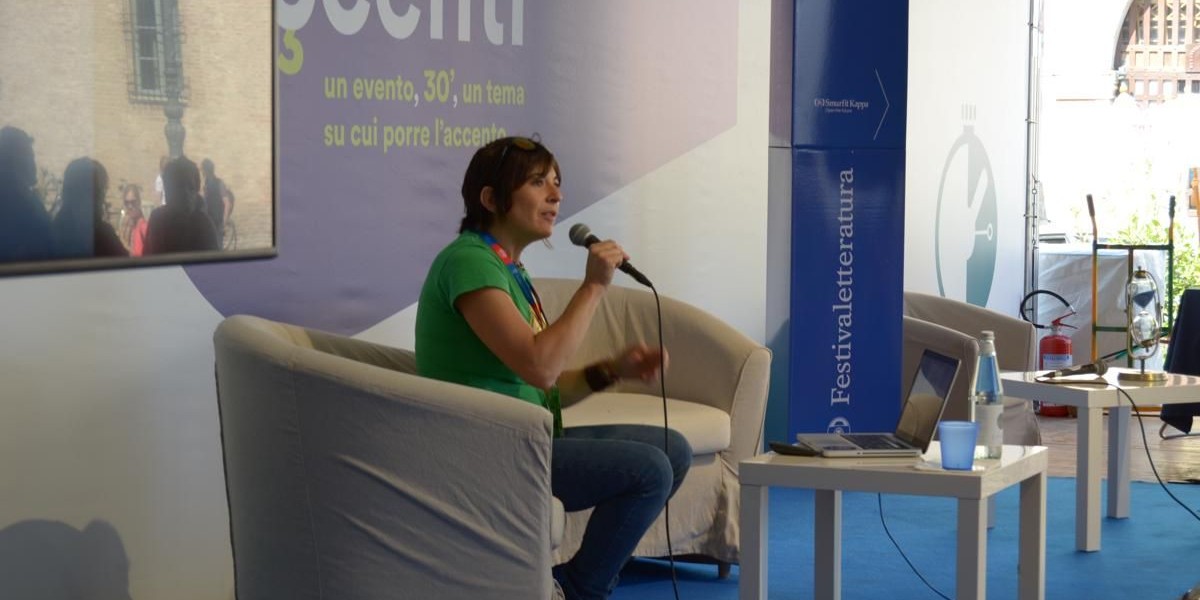
How light pollution is ruining our planet
Irene Borgna led the audience in Piazza Sordello in a reflection on another form of pollution that is ruining the planet: light pollution. She used a scientific and philosophical approach to explain how why we adopt certain attitudes and what we could do to change them, using some photos taken during a trip in spring 2019 as visual evidence. More specifically, for the past 100 years we have been using more electric light than we need and in the wrong way. For example, people should turn the light on only when they cannot see, such as in the case of car headlights on a dark street. This would ensure the restoration of darkness afterwards. And even if humanity may be afraid of darkness, it is fundamental for some night animals: in fact, we associate darkness with ignorance, threat and bleakness, while many animals use this time of the day to hunt, eat and reproduce. Furthermore, people should enjoy the night-time to admire the sky and all its stars, to gain some perspective on just how small how we are in the universe.
Borgna explained that without light pollution, the Milky Way would be visible for almost any vantage point on Earth. In order to combat this phenomenon, the light we use should be warm and not cold, put only where and when necessary and, most importantly, pointed downwards in order not to ruin the starry skies. To conclude, what the author wanted to show, which is reflected in her book Cieli Neri, is that darkness is both biologically and spiritually necessary, because “a child without stars becomes an adult without dreams”.



